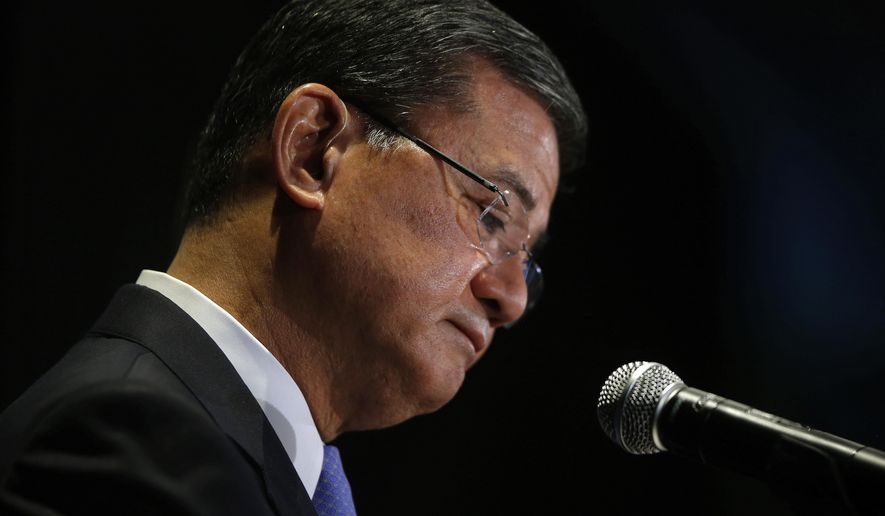A federal appeals court is holding the Veterans Affairs secretary in contempt after the department spent nearly two years ignoring a court order to process paperwork for a veteran’s disability claim.
The ruling last week by the U.S. Court of Appeals for Veterans Claims included some unusually blunt and colorful language criticizing the VA’s excuse that put the blame on mail-processing delays and an “overburdened system.”
“This inaction conjures a vision of a drowning man watched by a lifeguard in a nearby boat equipped with life preservers and rescue ropes who decides to do nothing even though the drowning man is blowing a whistle and firing flares to call attention to his plight,” two judges on the three-judge panel wrote.
A third judge dissented, saying the case didn’t merit a contempt finding.
The case comes as the giant VA bureaucracy faces a massive management overhaul in the wake of whistleblower reports of delays and doctoring of performance data at the department’s health care network for veterans. The troubles cost former VA Secretary Eric K. Shinseki his post this spring, with President Obama appointing former corporate executive Robert McDonald to clean up the agency.
But even in the VA, where veterans are frustrated by an agency that “seemingly has acted with little urgency” on disability claim appeals, the case of veteran Gene Groves, of Texas, stands out, according to the judges.
The ruling stemmed from an earlier decision in 2012, when the court remanded a case back to the VA’s Board of Veteran Appeals for further proceedings.
But the VA’s internal computer tracking system showed the “remand” decision as an “affirmance” ruling that sided with the VA.
Mr. Grove sent the VA multiple letters pointing out the error, but nobody responded until earlier this year, when the agency’s own appeals board ruled that a reduction in his post-traumatic stress disability rating was improper anyway.
Left unresolved, however, is why it took the VA so long to correct a data entry error in spite of numerous letters alerting the agency to the mistake passing through the hands of many employees.
In court papers, the VA acknowledged getting at least four letters but blamed the mix-up on “problems VA had in handling the mail.”
One VA official said that those problems have since been fixed and that VA shouldn’t have an issue of “not being able to account for mail received,” according to court records.
The judges, however, dismissed arguments that the delay was caused by an “overburdened system,” saying the VA essentially put their court order in a “dead letter” box.
The situation affected more than one veteran, the judges added.
“The inattention the secretary afforded the court’s remand order saps public confidence in the court and the fair adjudication of veterans benefits and impugns the court’s dignity,” the judges wrote.
In the ruling, the panel ordered that the VA pay Mr. Groves’ legal expenses and that copies of the ruling be sent to several top VA officials and the agency’s Office of Inspector General.
• Jim McElhatton can be reached at jmcelhatton@washingtontimes.com.




Please read our comment policy before commenting.